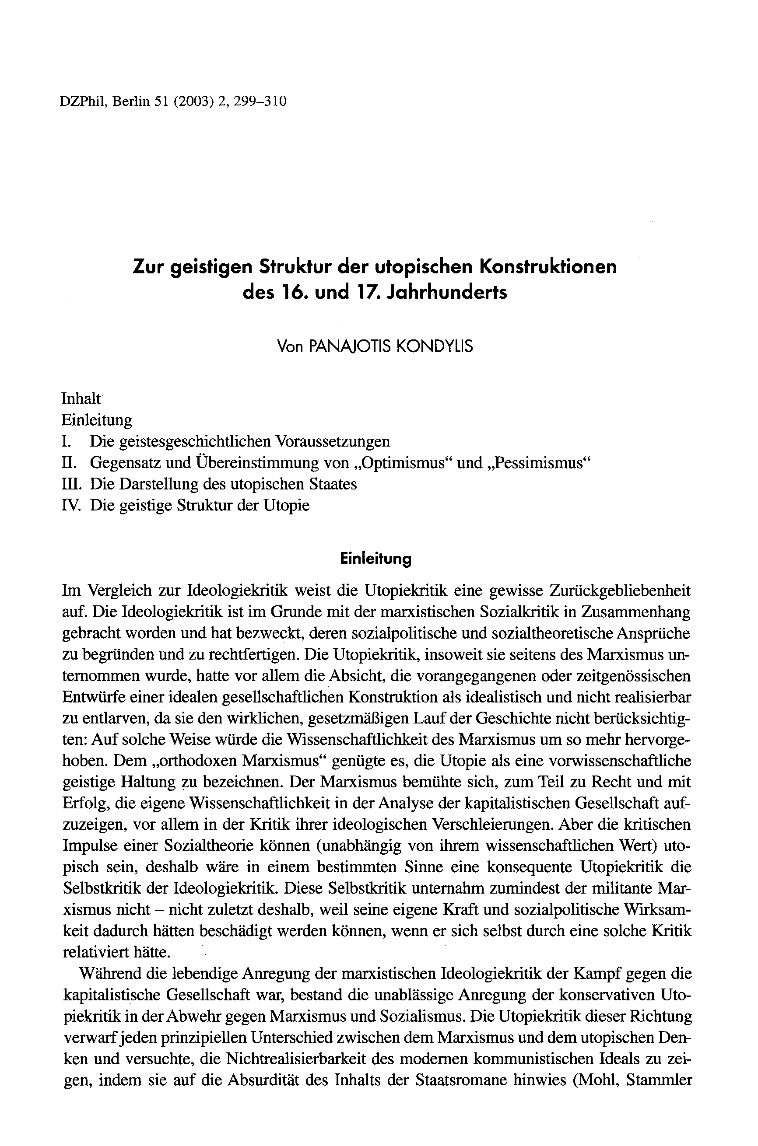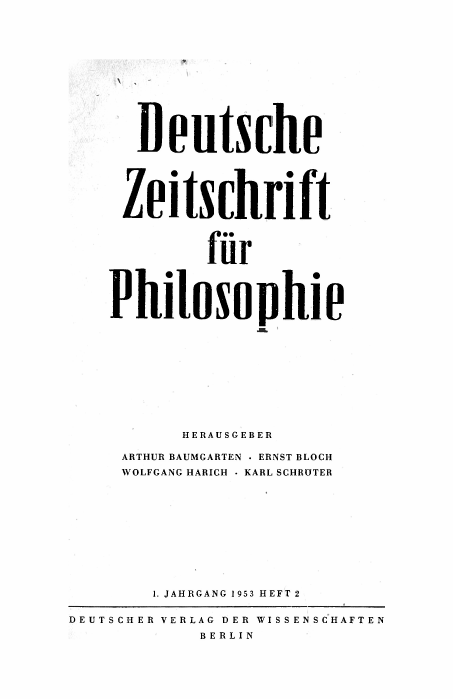"The fact that the utopists propose and propound a restructuring of the foundations of social life, proves that they view exactly these foundations, and the influencing of man through these (foundations), but not man and his innate (native) capacity (faculties, powers, abilities), as responsible for social misery (wretchedness, hardship, squalor). It is a different matter [[altogether]] as regards the great representatives of the “pessimistic” tradition. But in (regard to) the instinctive, empirical, from time to time contradictory, anthropology of Machiavelli, as in the Hobbesian geometry of immutable (invariable) human passions, history and social life are a function of the psychical faculties (aptitudes, gifts, (pre)dispositions, tendencies) of man, and not the other way around. Perhaps we could say that the most important, the tone-giving (i.e. setting the tone) faculty, aptitude, (pre)disposition etc. amongst these faculties, aptitudes, (pre)dispositions etc., is the will to power. That does not mean
"... The sole field in which the individual can unfold and develop, and distinguish himself from other members of his community, is that of action directed towards the perception of the common good – i.e. in the final analysis, again, directed towards subjugation to state morals. Only in this way can the individual gain/earn fame and respect. (Herein the motifs of fame and of public praise adopted from the humanists, which also possess a parallel meaning (significance) in Machiavelli, play a major role.) It is highly noteworthy that the author of Utopia, who describes and celebrates such men, by considering their (such men’s) existence necessary for an ideal social organisation, belongs himself to another kind of human type: he is a passionate dreamer, a man, in regard to whom (i.e. the aforesaid ideal men of Utopia), exactly his critical stance in respect of existing society, and his non-adaptation (non-conformity) to it (this existing society), urge and push Utopia to be wished for and to be planned. There is a contradiction between the human type, which preaches in favour of Utopia, and the human type, whose existence is necessary for the realisation of Utopia. How is the bridging of this gap logically possible? Apparently in three ways; namely, through the voluntary renunciation of that individualism necessary for the transition to the utopian state as soon as the society coming into being from the utopian urge or thirst (drive, yearning, impulse) matches, concurs or corresponds with the original plans and wishes of men; through gradual social education and training, for as long as the psychological leftovers and remnants of the previous spoiled (corrupt, perverted, depraved) society (including the no longer tolerated revolutionary drive) are still strong; and through the dictatorship of education, when the above-mentioned psychological hindrances (obstacles) are strong and unhoped-for (i.e. unexpectedly powerful), or when a part of the people is of the opinion (view) that the (what has been) realised does not match, concur or correspond with the (i.e. what was) planned."
"... Reason, the language of the representative, is applied to and displayed in the imagination, the language of the (those) represented, it (Reason) becomes the form of compulsion (coercion or force/forcing [[others]]), which does not only work on (deal with or process) the original, many-sided stuff (i.e. (subject) matter, material) of the dream of The Land of Milk and Honey, but also modifies its (the dream of the The Land of Milk and Honey’s) essence (being or nature) by serving such elements which do not belong to the language of the (those (who are)) represented, but the world view taken (inferred or gathered), in part or entirely, from the ruling classes.[1] A silent and bitter struggle takes place between the upper strata and the lower strata, and this intellectual(-spiritual) struggle, whose course and outcome is imprinted in the logical structure of Utopia, depicts a struggle of bearers, who, although they unite and unify themselves vis-à-vis a common foe, occupy or take up different intellectual(-spiritual) positions and can be identified socially with difficulty (i.e. can be socially difficult to identify)."
[1] AAAA-
HAHAHAHAHAHAHAHAHAHA
HAHAHA!!!!!!!!!!!!!!!!!!!!!!!!!!!!!!!!!!!!!!!!!!!!!!!!!!!!!!!
!!!!!!!!!!!!!!!!!!!!!!!!!!!!!!!!!!!!!!!!!!!!!!!!!!!!!!!!!!!!!!!!!!!!!!!!!!!!!


